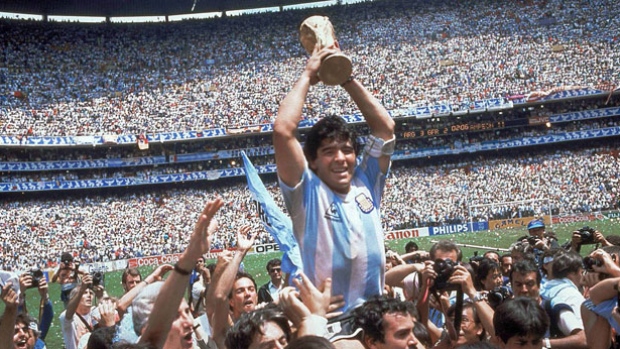Soccer slowly warms to Video Review
2018 World Cup may be first to use replay
After years of reluctance, soccer may finally be overcoming its aversion to technology.
In March the IFAB, the entity responsible for overseeing the laws of the game, said it would begin testing the use of video review technology during matches.
Over the next two years these closed-door tests will explore how match officials can best make use of video assistant referees, either upon request or proactively, to verify their calls.
FIFA president Gianni Infantino supports the move.
“I really hope that the [2018] World Cup in Russia will be the first where video refereeing is used to make refereeing maybe better,” he said.
Why has soccer been reluctant to incorporate video review at at time when every other major sport has embraced it?
“I don’t think any genuine soccer fan would want to see the game go down the road of the NFL.”– Nigel Reed, soccer analyst
Nigel Reed, a soccer announcer and analyst who has worked for both TSN and CBC Sports, says it’s partly due to the fact that “soccer, in comparison to most other sports, has been around longer. So it’s partly to do with tradition but also with the integrity of the game.”
More specifically, Reed believes the answer lies with the fact that soccer is a non-stop sport.
“It doesn’t lend itself to video replay the same way that hockey or basketball do” because it doesn’t have the same amount of natural breaks, he says. “The basic problem is how do you keep the game moving [while incorporating video review technology] so that it doesn’t last for hours.”
But even among purists there is growing recognition that officials need help. Asking them to oversee every call in a 90-minute match is a hard ask. Let alone in the modern era, where players are faster, stronger and more skilled than ever, complicating the ability of officials to make real-time decisions, especially in the box.
The difficulty in making these decisions, and the potential uproar that can follow any missed call, has helped move soccer away from its technological lethargy. Incidents like England’s disallowed goal at the 2010 World Cup, where cameras clearly showed the ball entering the German net, helped clear the way for the introduction of goal-line technology.
Still, even this advancement was only adopted after it was shown that it could seamlessly be incorporated without slowing down the game. In this case through a watch on the referee’s wrist that confirms virtually instantaneously whether or not the ball has entered the net.
Another reason, and perhaps the most important of all, why soccer has been reluctant to adopt video review technology is the desire to preserve the human element in the game.
For better or for worse, sport is made up of memorable moments — whether Maradona’s “Hand of God” goal at the 1986 World Cup or Michael Jordan’s infamous push-off against Bryon Russell to give the Bulls their sixth championship — that may not have stood up to video replay. And yet these are the moments we remember. The flaw feeds the passion, which helps build the lore, and that’s worth considering.
“I don’t think any genuine soccer fan would want to see the game go down the road of the NFL,” says Reed, referring to the league where all scoring plays are automatically reviewed. “There is a limit as to what we can embrace here, in terms of drawing the line between video technology to help referees, and the robot in the stands making all the decisions.”
The pursuit of technological certainty has its drawbacks. Hockey fans are discovering this with the introduction of the coach’s challenge. Suddenly, it’s not as easy as it once was to determine whether or not to cheer a goal — the deference to video technology has created a form of replay anxiety where reality is not determined by what we think we see, but by the eye in the sky.
That’s because technology has reached a point where it can exert as much influence on the outcome of a game as any player on the field. And that’s worth a pause, or in soccer’s case a slow jaunt, when considering whether to embrace it.
Article Written By: Ignacio Estefanell with CBC Sports
0

